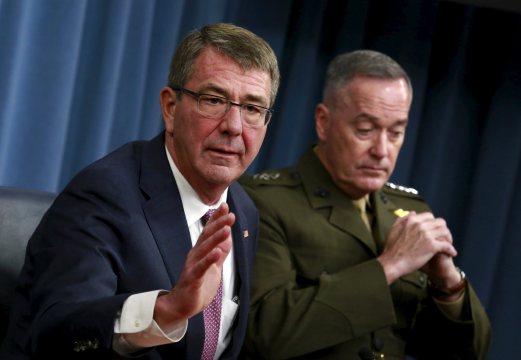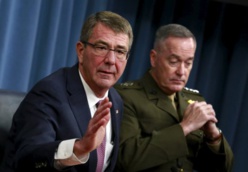Wading into the controversy created by the FBI’s request to Apple to create software capable of circumventing security related features in its flagship smartphone in the wake of the terror shootings in San Bernardino, California, Defence Secretary Ash Carter has called on the U.S. tech sector to play a greater role, as innovators and entrepreneurs, in national security.
During his third trip to Silicon Valley, since taking office a year ago, Carter has called for greater synergies between the public and the private sector on data security. He has underscored the fact that the cost of not doing so is very great since it would allow countries such as China, Russia and others who do not prefer a free internet, to set new global standards.
Although he did not specifically address the on-going litigation, he again underscored the fact that the Pentagon is the world’s largest user of encryption technology and strong encryption is critical. It would be unfortunate if one particular case were to drive future policy considerations, he said.
"We shouldn’t let the solutions to this larger issue of how to handle data security as a society be driven by any one particular case. It would be unreasonable," said Carter to reporters after a speech to the Commonwealth Club of San Francisco.
Noting that the issue of data protection to be a complex one as it involved a whole range of scenarios, including data at rest, data in motion and data crossing borders; solutions to issues emanating from these complexities should be hammered out between players in the private and public sector.
In related news, James Comey, the FBI Director, has told in a congressional hearing that if the court were to force Apple to provide the FBI data from the iPhone 5c in the San Bernadino case, it would be “potentially precedential”.
He has further warned against new legislation spurred solely from the facts of this one particular case.
"It is easy to see wrong ways to do this. One would be a law hastily written in anger or grief. Another would be to have the rules be written by Russia or China," said Carter.
After the congressional hearing, Carter along with his chief arms buyer, met up with five small companies for an event which was styled on the TV series “Shark Tank” wherein entrepreneurs pitch their ideas to investors.
Commenting on some of the interesting ideas that were throw around during the discussion, Carter said new technological ideas including unmanned surface drones and ways to visualise big data had in particular made an impact on him. He was particularly impressed by the “tremendous” people behind the ideas.
"I hope we steal some of them," said Carter.
During his third trip to Silicon Valley, since taking office a year ago, Carter has called for greater synergies between the public and the private sector on data security. He has underscored the fact that the cost of not doing so is very great since it would allow countries such as China, Russia and others who do not prefer a free internet, to set new global standards.
Although he did not specifically address the on-going litigation, he again underscored the fact that the Pentagon is the world’s largest user of encryption technology and strong encryption is critical. It would be unfortunate if one particular case were to drive future policy considerations, he said.
"We shouldn’t let the solutions to this larger issue of how to handle data security as a society be driven by any one particular case. It would be unreasonable," said Carter to reporters after a speech to the Commonwealth Club of San Francisco.
Noting that the issue of data protection to be a complex one as it involved a whole range of scenarios, including data at rest, data in motion and data crossing borders; solutions to issues emanating from these complexities should be hammered out between players in the private and public sector.
In related news, James Comey, the FBI Director, has told in a congressional hearing that if the court were to force Apple to provide the FBI data from the iPhone 5c in the San Bernadino case, it would be “potentially precedential”.
He has further warned against new legislation spurred solely from the facts of this one particular case.
"It is easy to see wrong ways to do this. One would be a law hastily written in anger or grief. Another would be to have the rules be written by Russia or China," said Carter.
After the congressional hearing, Carter along with his chief arms buyer, met up with five small companies for an event which was styled on the TV series “Shark Tank” wherein entrepreneurs pitch their ideas to investors.
Commenting on some of the interesting ideas that were throw around during the discussion, Carter said new technological ideas including unmanned surface drones and ways to visualise big data had in particular made an impact on him. He was particularly impressed by the “tremendous” people behind the ideas.
"I hope we steal some of them," said Carter.















